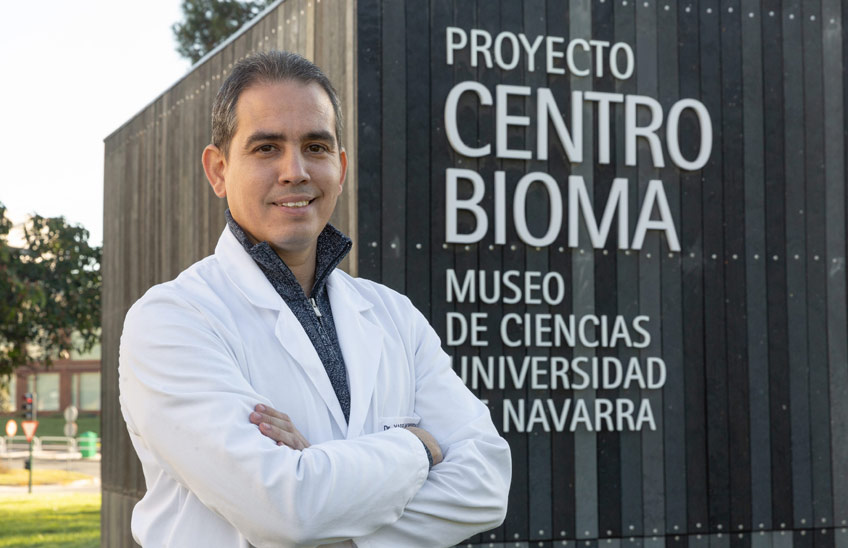The Institute of Biodiversity and Environment (BIOMA) will investigate the impact of the presence of toxic algae in the rivers and reservoirs of the Ebro basin in Navarre.
Research will provide insight into the impact of cyanobacteria on human health, ecosystems, agriculture and drinking water supply

PhotoManuelCastells
/Yasser Morera
25 | 01 | 2024
The increase of harmful algae in reservoirs -especially the bloom of cyanobacteria- has a negative impact on water quality due to the toxins produced by this type of plants, which can cause harmful effects on people's health. This is the starting point of the study in which Yasser Morera, researcher at the Institute of Biodiversity and Environment (BIOMA) of the University of Navarra, recently incorporated thanks to the Campus Home Chair in Sustainability, is immersed.
Yasser has initiated a research project to evaluate the current status of cyanobacteria and their proliferation in the rivers and reservoirs of the Ebro basin in Navarra and nearby areas.
"This project seeks to carry out an evaluation from a chemical, biological and toxicological point of view with the aim of contributing to sustainable water management in a scenario of climate change, which may favor the increase of blooms," says Yasser Morera, principal investigator of the project.
According to Yasser, in the coming months samples of water, sediments and particulate material will be taken in several rivers and reservoirs in Navarra -and other areas near the Ebro basin- where the presence and proliferation of cyanobacteria is already known, as is the case of the reservoirs of Yesa, El Val or González Lacasa, and the rivers Sadar, Elorz or Arga. The samples collected will be analyzed to identify the types of cyanobacteria present and to check their toxicity, and the consequences they could have on human health, ecosystems, the economy, the supply of drinking water to the population and for agriculture will be studied.
For Morera, this research will contribute to "a more effective management of watersheds for agricultural or aquaculture purposes, as well as a better preparation of local authorities to face future scenarios of toxic algal blooms".
In addition, this project aims to raise public awareness of this problem, so that citizens take an active part in the identification of this type of plants and their flowering, which would have an impact on better water resource management.
The Institute of Biodiversity and Environment (BIOMA) of the University of Navarra and the Navarre-based company Gestión de Alojamientos Estudiantiles Navarra SL. created in 2022 the "Campus Home Chair of Sustainability" to promote research in environmental matters, as well as dissemination activities to provide knowledge and raise awareness in society about the care of nature and sustainability.